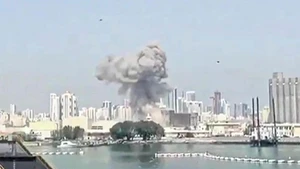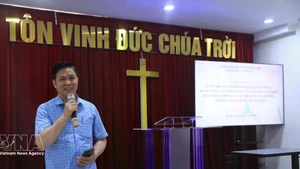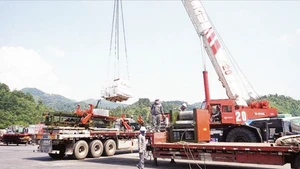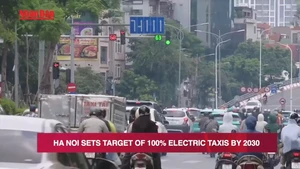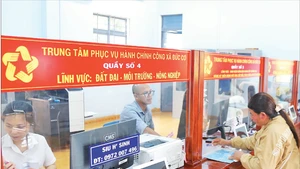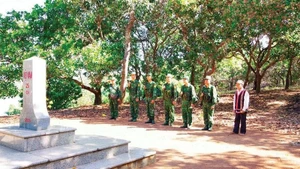Speaking at an exchange programme marking International Day for Mine Awareness and Assistance in Mine Action (April 4) in Hanoi on April 3, the leader asked for quick reduction of areas contaminated with bombs, mines and UXO, as well as better prevention and support for victims.
“Although the war has been over, the severe consequences of landmines, UXO and toxic chemicals still exist, affecting human health and living environment in many parts of the country,” said PM Phuc, who is also head of the National Steering Committee on the Settlement of Post-war Unexploded Ordnance and Toxic Chemical Consequences (Committee 701).
“Many people have lost their lives or suffered the loss of a part of their body or lost their loved ones. The consequences of landmine and UXO contamination have also limited socio-economic development and become an obstacle to Vietnam’s sustainable development goals,” he noted.
Over the past few years, the Party and the State have always paid great attention to the work, and rolled out major policies and guidelines to help overcome the consequences, especially supporting victims of landmines and toxic chemicals after the war, PM Phuc said.
Ministries, agencies and localities nationwide have also actively coordinated with international organisations to remove war-left bombs, mines and chemicals, he added.
The leader cited a dioxin remediation project at Da Nang airport between Vietnam and the US and another project on the settlement of bomb and mine consequences in the central provinces of Quang Binh and Quang Tri between Vietnam and the Republic of Korea (RoK).
He used the occasion to thank international donors and non-governmental organisations for providing equipment and funds to support these efforts.
The PM stressed that it is necessary to review relevant policies and laws, step up cooperation in this regard and increase information dissemination in order to raise public awareness of the work.
It is estimated that more than 6.1 million ha of land or 18.71% of Vietnam’s total area are contaminated with about 800,000 tonnes of bombs, mines and UXO left by wars, which are scattered over all 63 cities and provinces in the country, with the central region the hardest hit.
Between 1975 and now, bombs and mines killed more than 40,000 people and injured 60,000 others, many of whom are family breadwinners and children.
Over 2,000 sappers died and got injured while searching for bombs and mines during the period.
Vietnam decontaminated from 40,000-50,000 ha of land each year. However, it will take more than a century to clear all bombs and mines in the country, with an estimated cost of over US$10 billion, excluding spending on resettlement and social welfare work in the danger zones.


